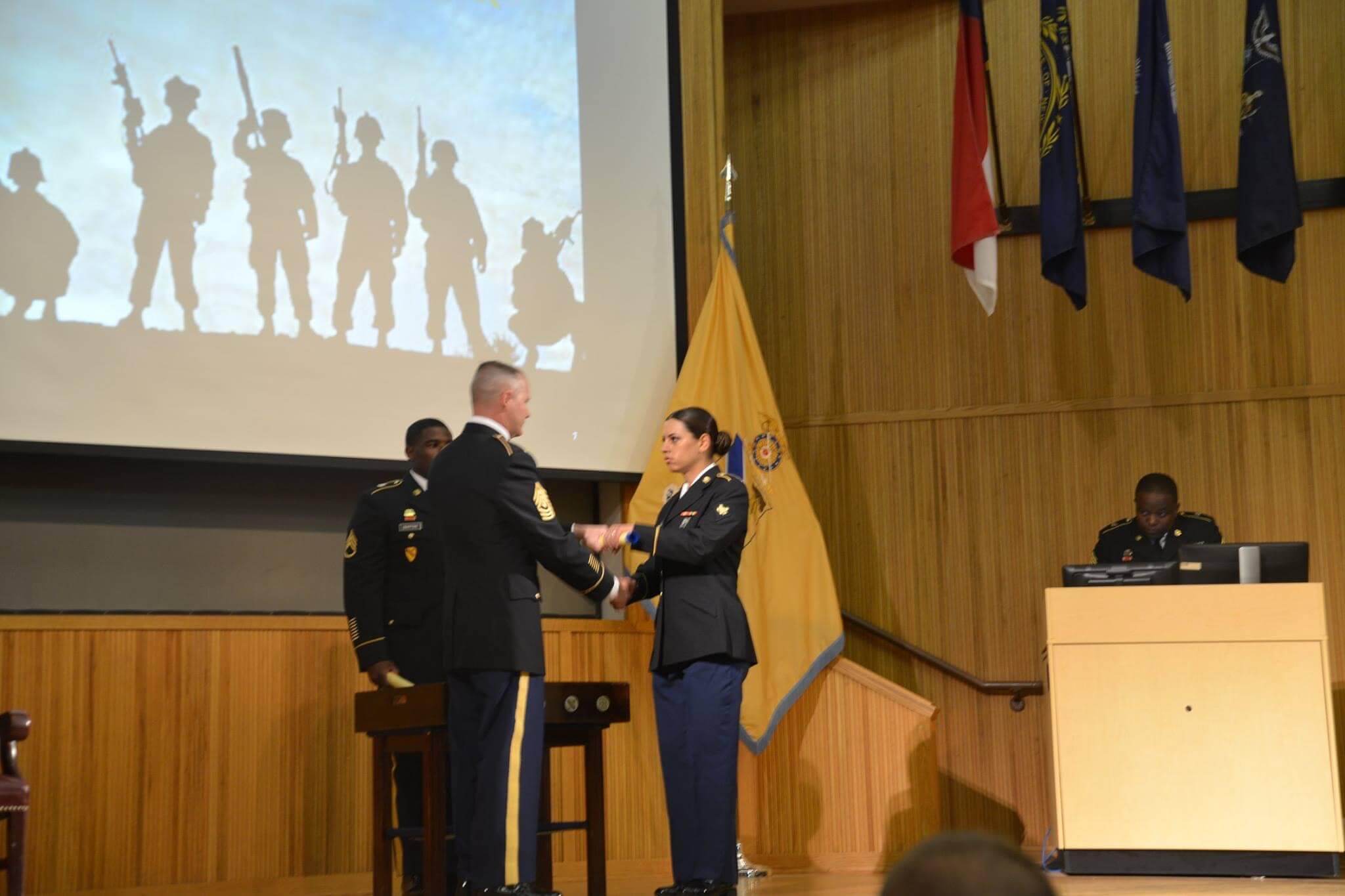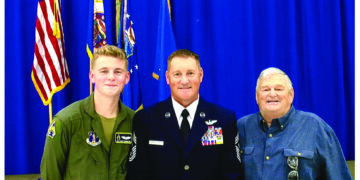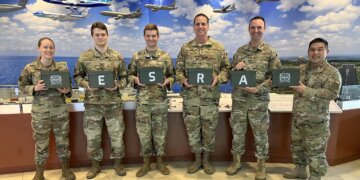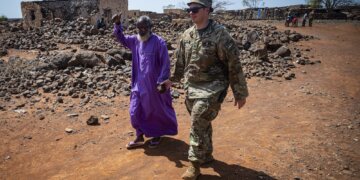Hala Kadim is a soldier living a busy, full life in the U.S. She’s using her Post-9/11 GI Bill, earned through her years of active-duty service, to pursue a master’s degree while juggling an internship and drilling with the Army Reserve.
Learn more about education opportunities for soldiers
Kadim’s situation could describe many reservists, but the story of how she got here is unique because it begins in Baghdad.
Trading academia for the U.S. government
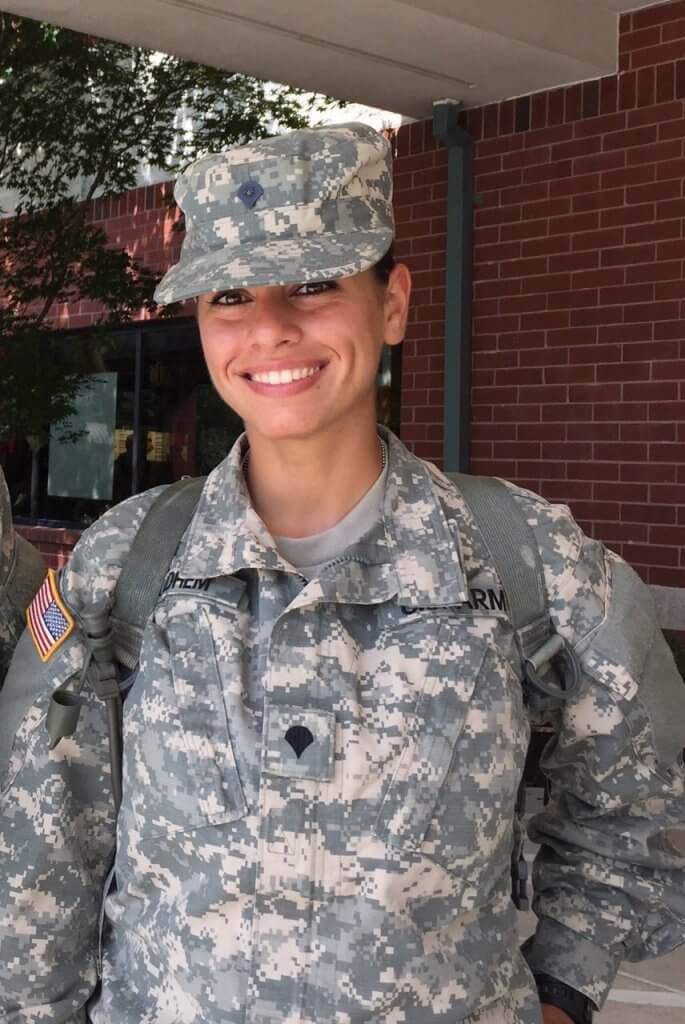
Her journey to become an American soldier started after she had recently earned a master’s degree in physics at a university in Iraq. She pursed an advanced degree, because after completing her bachelor’s, she felt that her options were limited.
“There was nothing else for me to do,” she said. “I didn’t want to work for the school or for the government at that point. I wanted more, so I went for my master’s. Little did I know that I wasn’t going to work in the field of physics.”
Indeed, when the head of the physics department at her university offered Kadim a job as a substitute teacher — and predicted that she could eventually succeed him as the head of the department. She declined.
Instead, she interviewed and was hired for a job as an interpreter with the Army. Her first position was with the Iraq Training and Assist Mission — Ministry of Interior (ITAM-MOI), a security forces unit that was training new Iraqi recruits at the Iraqi police academy in Baghdad. When U.S. forces withdrew from Iraq, Kadim transitioned to working as an interpreter for the U.S. Department of State.
Risking her life for her family’s future
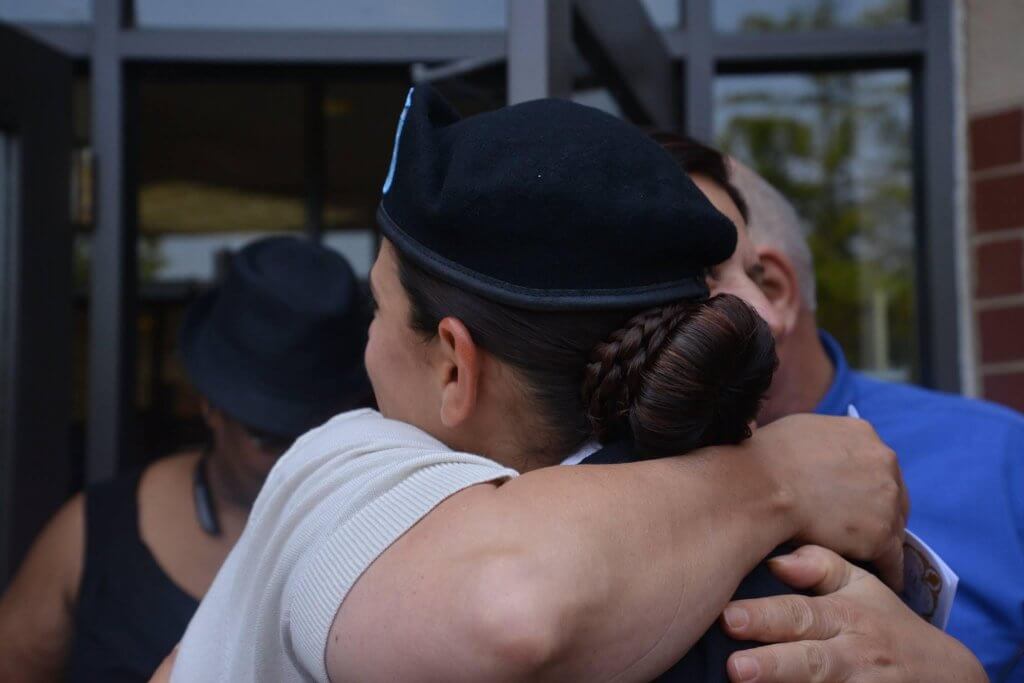
While working for the U.S. was an excellent opportunity, it came with inherent dangers.
“The fear and the anxiety were there every time [I went to work],” Kadim recalled. Rather than working in the more secure Green Zone, her position was located at Camp Shield, which was in the middle of Baghdad. When traveling to and from work, she kept a low profile, wearing a head scarf to hide her identity.
Not only was Kadim risking her own life traveling to and from work, but her job put her family in danger. They kept it secret that she was working for the U.S. At that time in Iraq, “you didn’t know who was your enemy and who was your friend,” she explained. “I was putting the safety of my whole family on the line for this job, but I was also opening a new door for the family to have hope to move to the U.S.”
Hope for a future in the United States
When Kadim accepted the position working for the Army, she received no promises or guarantees that she could obtain a visa to come to the U.S. However, she looked forward to “learning U.S. work ethic,” and she hoped that she could one day move to America.
“I just wanted better treatment and better standards,” she said. “I was passionate about women’s rights. At college, it was tough to be treated as a second-class citizen by all the men and boys.”
In contrast, the American soldiers who worked with Kadim saw her potential. Her boss, an O6, told her that she would make a great officer. His encouragement planted the seed for her interest in joining the Army, as did her respect for U.S. soldiers: “I admired the discipline, the professionalism, the strength, and the resilience.”
Kadim worked for the U.S. government for one year before she became eligible to apply for a Special Immigrant Visa. It was a lengthy process involving multiple interviews and lots of paperwork, but three years after starting work with the Army, she received her SIV. Four months later, in December 2012, she moved to the U.S.
The decision to enlist
Kadim settled in Washington, D.C., where she already had friends and contacts, and she found a job as a receptionist at a language school. But still, in the back of her mind, she wanted to join the Army. She explains, “as an Iraqi woman, I felt like I was given a second chance for life by moving to the U.S. [Joining the Army] was a way for me to serve and belong to the society in the U.S.”
After she made the decision to enlist (she could not become an officer because she was not yet a U.S. citizen) the process took nearly nine months, but in April 2015, she was sworn into the Army.
Adjusting to new culture
In the beginning, life as a soldier was very challenging. First and foremost, there were the significant cultural differences. Kadim went from living with completely different social rules in Iraq — where women were expected to be “shy and timid,” avoiding eye contact with men — to an infantry unit, where she was one of only eight females and expected to pull her weight amongst all the soldiers.
Army life was also a lot different than she expected.
“I walked in with my Iraqi standards of what success in a professional environment is, and then I was faced with starting from the bottom with many other soldiers,” she said.
She realized that success in the Army is “not just about the amount of information I bring or my background, but it’s also about physical fitness and being mentally strong and emotionally strong.”
Fortunately, Kadim was a quick study and figured it out. Her experience in the Army changed her for the better.
“Eventually it molded me to become a stronger woman. When I got the hang of it, I really succeeded in my Army career.”
Transitioning to the Army Reserve
Her active-duty career spanned nearly four years and included a nine-month deployment to Kosovo. But when her first enlistment was over, she made the difficult decision to transition from active duty to the reserve component. While she could have easily seen herself in an Army career, she missed her family and “stability.” By that time, Kadim’s parents and younger brother had obtained their visas and moved to the U.S. She wanted to live close to them, building her own community and a base of friends.
Joining the Army Reserve has proved to be a good compromise. She is still a soldier, proudly wearing the uniform, but she is pursuing other dreams, including a degree in a field that she enjoys. Kadim is now using her Post-9/11 GI Bill to obtain a master’s in counseling psychology, and she plans to become a marriage and family therapist.
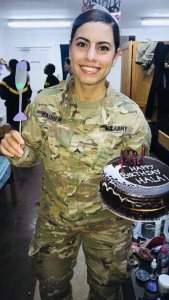
A personal transformation
It has been a long road since Kadim first started working for the Army, and moving to the U.S. was not easy. As she explains, “I had to find my identity all over again. I had one identity in Iraq: the collectivistic, Eastern Islamic culture that molded me as an Arab woman. [Then I moved to] the individualistic, Western, Christian society that has a completely different set of values and expectations of women. So, I had to pick the best of both worlds and find my new identity as an Iraqi American woman living in Western society. I feel like I finally found myself, but the whole experience of immigrating and finding my new self was very challenging.”
With all that she has achieved, she is most proud of the fact that she was able to move her family to the U.S.
“I see them thrive and do so well, and it’s rewarding to me,” she said. Her biggest personal accomplishment? Joining the U.S. Army and serving America: “It transformed me as a woman, and I feel like I’ve become a better person because of it.”
Read comments


